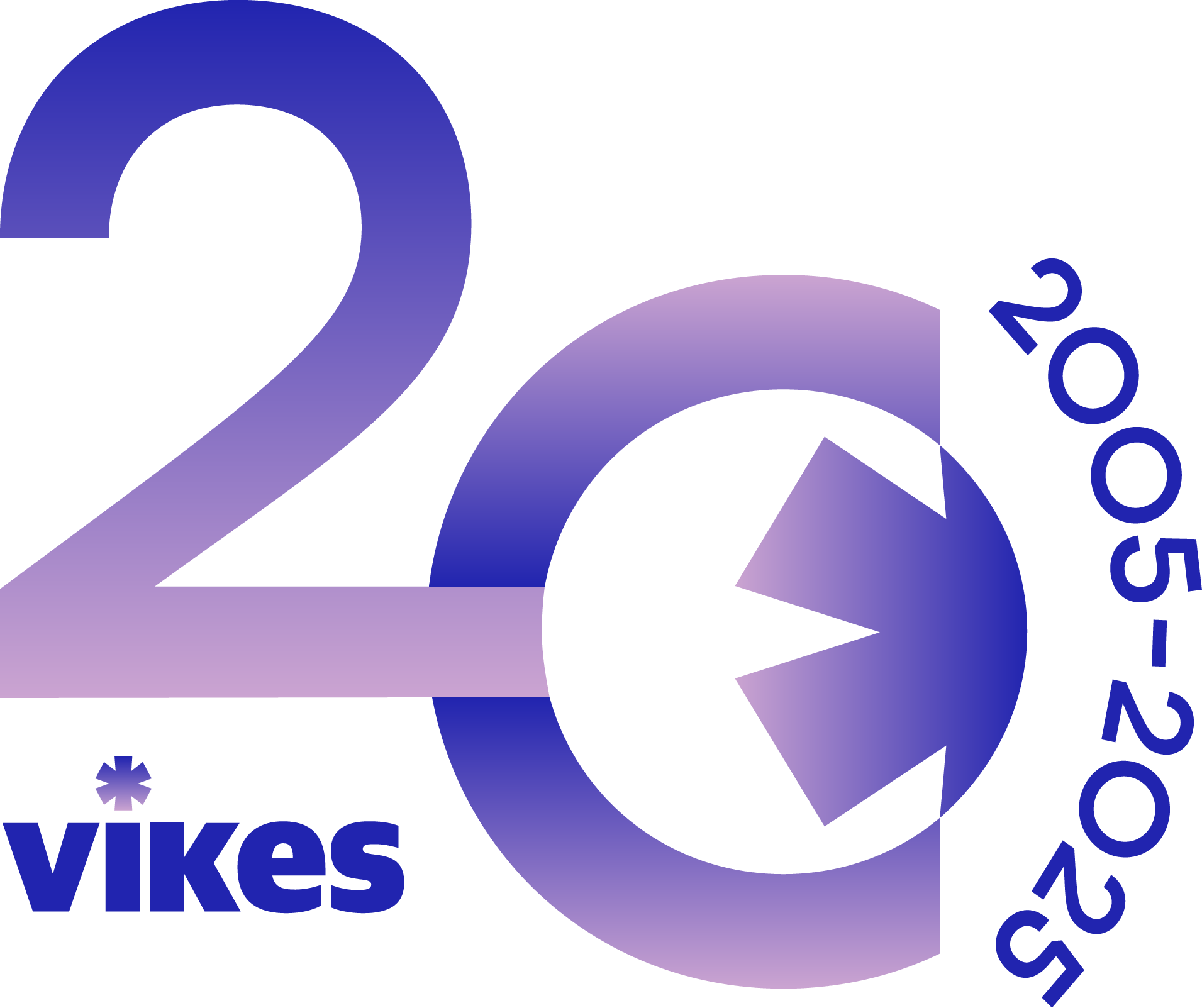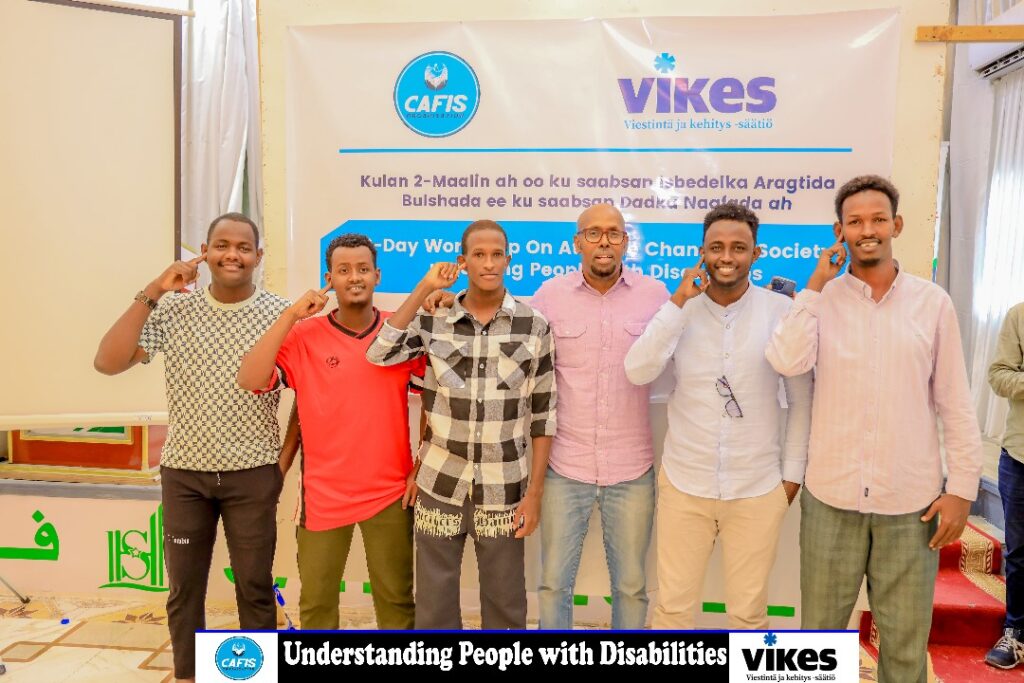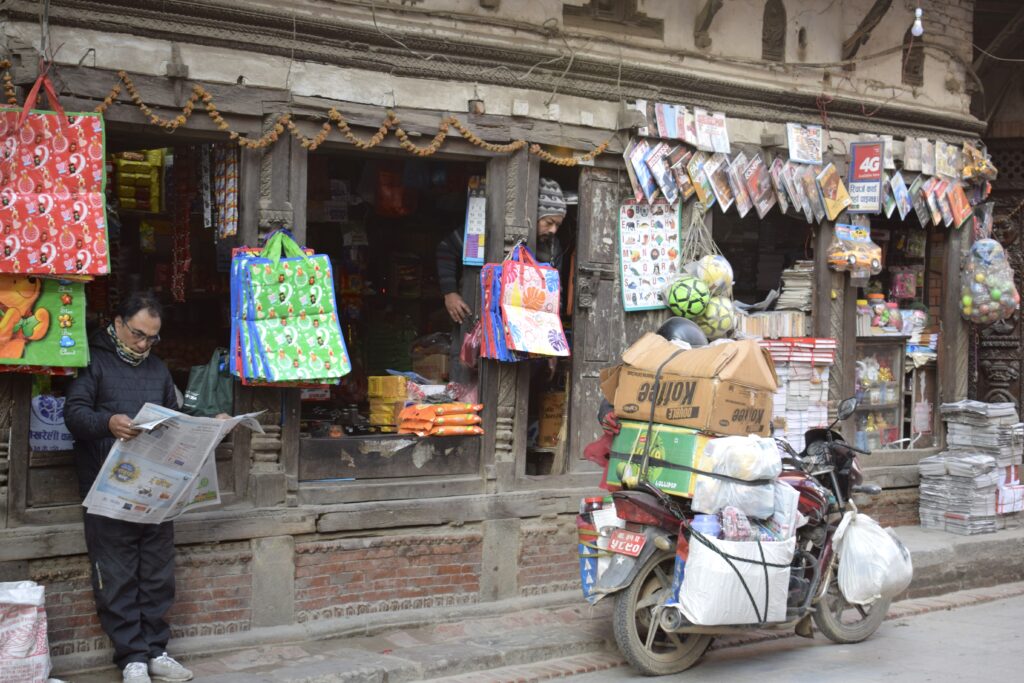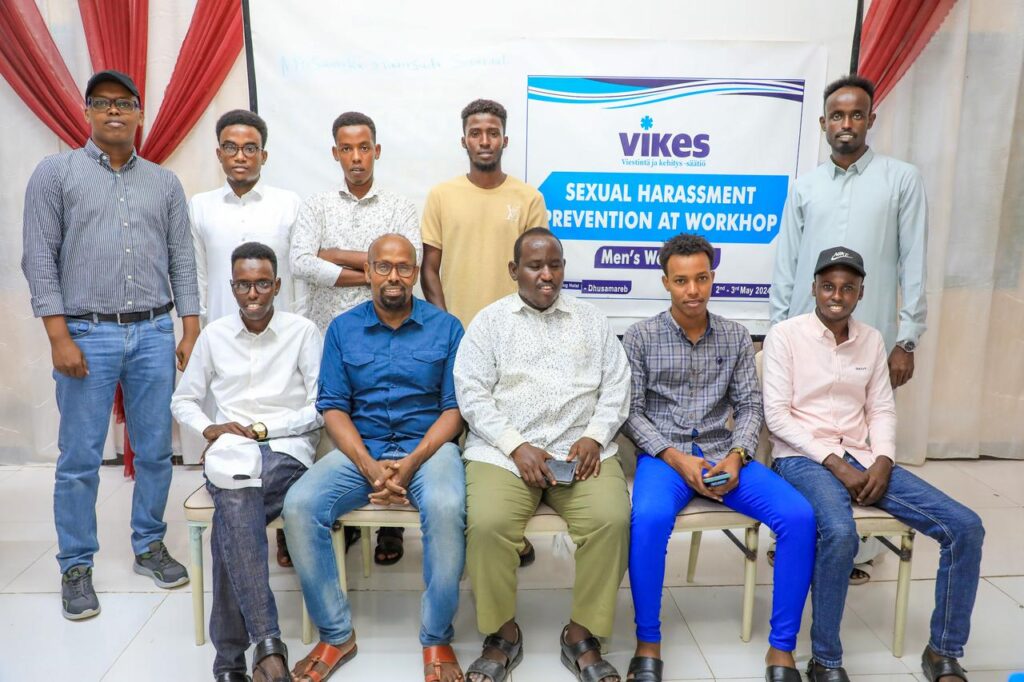A free media is a prerequisite for democracy. The media support democracy in many ways: by making the voices of different groups heard, by exposing grievances and by ensuring that citizens can participate in an informed way in collective decision-making.
If only one kind of people have a voice in a society, decisions are likely to be made on their terms and with them in mind. If the urban elite do not know what is happening in the countryside, nothing in the countryside will change for the better.
That is why it is important for countries to have a quality media that reports on the failures and also the successes of the country as a whole, taking into account all groups.
In Tanzania, for example, Vikes has supported rural community radios, which play a dual role. They are very popular among the rural population and are therefore good channels of communication. Development agencies and the government provide important information to villagers, while radio stations such as Jamii FM report on village life and the situation of women and people with disabilities, for example.
At the same time, decision-makers will be informed by radio if there are serious problems in a village. For example, radio programmes have reported on bad school buildings and schools with too few teachers, and after the programmes, local governments have repaired the buildings and hired teachers.
Vikes has also built a portal for radio, giving rural media a voice in the cities, so that rural grievances can be heard by decision-makers in the capital. At the same time, ordinary city dwellers will also get to hear how things are going in the countryside.
Similar activities are being carried out by Vikes’ long-standing partner Yangon Film School in Myanmar. From the very beginning, it has been important to them that the film school admits students from different ethnic groups. When students make documentaries in different parts of the country and with different groups, people from the majority population also see and hear the ideas of different groups and see their lives.
In this way, different groups of people gradually get to know each other and make their voices heard.
Why is press freedom important for sustainable development?
Freedom of expression and freedom of the press are part of the goals of the UN’s 2030 Agenda, but at the same time they are also an important prerequisite for progress towards sustainable development: if citizens are not sufficiently informed about the actions of decision-makers, it is difficult to push them to make sustainable choices – or to evaluate the decisions taken.
This is how Auli Starck, former Executive Director of Vikes, explains the relationship between freedom of expression and sustainable development:
LINK TO VIDEO: https://youtu.be/Upsq24rY7nc
Auli Starck talks about freedom of expression at the online course Journalists for the Future – Journalism for Sustainable Development.
The UN’s Sustainable Development Goals, the 2030 Agenda, have many points where the free press can contribute.
Good news can improve health, education and equality, adapt to climate change and create jobs.
However, the main media target is Battery 16. paragraph 3: Peace, justice and good governance.
Giving a voice to all groups in society will better ensure “flexible, inclusive, participatory and representative decision-making at all levels”, as the objectives state.
A functioning media and investigative journalists expose the ills of society, and very popular news stories are those that expose corruption, violations of people’s rights or discrimination.
For example, Vikes’ partner, the Centre for Investigative Journalism (CIJ), is known in Nepal for its integrity and extensive exposés. The CIJ is part of the International Consortium of Investigative Journalists (ICIJ), and has contributed to the digging into the Panama Papers and other leaked documents that have come to light through the leaks. The work of the CIJ has resulted in the resignation of the Chief Justice of the Supreme Court, among others, and many other corruption scandals have come to light, making Nepal a better democracy by the minute.
In the same way, Vikes-backed journalists in Central America are boldly reporting on abuses and human rights violations. The worst situation is in Nicaragua, where the majority of independent journalists have been forced to flee the country. They are now supporting a more sustainable future for their country and democracy from exile.
They talk about their work in a video. The story continues after the video.
Is freedom of the press a reality?
Vikes closely monitors the state and development of press freedom not only in the countries where it operates, but also in the wider world. One reliable source of information on the current situation and challenges in different countries is the annual global press freedom index compiled by Reporters Without Borders (RSF).
The Index assesses press freedom in 180 countries, covering media pluralism and independence, media legislation and journalists’ safety.
Although Finland ranks among the top countries in international comparisons of freedom of expression and freedom of the press, our media are not immune to global phenomena. Freedom of expression is challenged, for example, by the rise of hate speech and harassment against journalists.
In the video above, journalist and non-fiction writer Johanna Vehkoo talks about the cyberbullying journalists face, how to prevent it and how showing peer support to a journalist who is the target of hate is extremely important: it shows the bully that they are not alone.
LINK TO VIDEO: https://youtu.be/zZaRi-yZRDA
Johanna Vehkoo talks about cyber hate in a video produced for Vikes training.
Based on his own experience, Vehkoo has also spoken a lot about the need for a new kind of legislation in Finland, especially one that recognises online harassment and online defamation. The topic has been discussed, for example, in an article entitled “The judiciary is being used as a vehicle for online harassment – Police and prosecutors must draw up common rules of the game”, which is part of a series of media students’ stories on freedom of expression and democracy.
Freedom of expression in Finland may also be limited by who is allowed to be seen and heard in the media: is it only the same white, middle-income, middle-aged group that the majority of journalists represent? For more on this topic, see the Diversity in the media page (LINK: Diversity in the media in Finland).
What is free media?
News is the news that someone doesn’t want published. Everything else is advertising. This famous saying is often put into the mouth of George Orwell, but apparently it is a quip from an unknown thinker who has lived a long time.
But the idea is at the heart of the free press. There are always things in society that someone doesn’t want publicised, from corruption to embarrassing appointments or collusion. And in every society, politicians, business leaders, communications managers and many others want the media to write favourably about them and their employers.
Journalists should be accountable only to their readers and handle even difficult issues with uncompromising professionalism. But often it doesn’t work.
In poor countries in particular, the media are often under pressure, either directly or through advertising money, and journalists are often threatened, arrested or even killed, and editorial offices are raided. Above, we saw how Nicaraguan journalists have fled the country under pressure.
Vikes has been working for free media throughout its existence. In Somalia, for example, the Somali National Television (SNTV) has been developing for years to become a public service media, a kind of public service broadcaster.
SNTV is run by the Somali Ministry of Communications, and it is difficult for its journalists to operate independently if, for example, the minister calls and asks for a film crew. Many state media will be reduced to state media if their independence is not strongly guaranteed by legislation and practical measures.
This work has borne fruit in Somalia, and an external evaluation has shown that the quality of news has improved. However, there is still a long way to go before public service media are ready.
Why is the right to information important?
According to the Sustainable Development Goals, citizens should be guaranteed public access to information.
It is a fundamental right, the importance of which for democracy cannot be overemphasised. If citizens do not know what is happening in the country and in the world, it is almost impossible for them to influence things for the better. Voting and other forms of influence are difficult or go awry if only one-sided information is available and the wrongdoings remain hidden.
If there is no information about the shortcomings, no one can fix them.
Propaganda and outright brainwashing are most rampant in dictatorships, where the media are completely in the grip of the state. North Korea is probably the best known example of totally controlled information, and Russia and Venezuela are also known opponents of free information.
Former Tanzanian President John Magufuli was notoriously tough on the press. He was also known for not believing in a pandemic caused by the coronavirus. This combination was dangerous, because under Magufuli, the Tanzanian media were not allowed to write about the disease, and it was downplayed in public debate. The fake news spread quickly on social media, when there was little researched information. Vikes managed to address this with a podcast series that became hugely popular.
Their knowledge is directly linked to a functioning democracy.
In authoritarian countries, it is often the case that the poorer sections of the population in particular support the leaders in power. If information is scarce, and the few media outlets only report on the excellence of the government, it is easy to believe it.
Why is democracy important?
In a functioning democracy, everyone has a say in decisions and policies that affect them. Ideally, wise and well-informed citizens would vote for leaders who selflessly serve the common good.
Then inequalities will be reduced, everyone’s rights will be guaranteed and the environment will be taken care of.
In practice, the world still has a long way to go to achieve this dream, and even democratically elected leaders can restrict human rights and act against good governance.
So a variety of development programmes and hard work are needed.
Even if democracy is not perfect, it is worth moving towards anyway. Improving civil rights and the media will improve people’s lives and democracy, even if perfection is not achieved.
What is civil society?
A free civil society does not only mean NGOs, but also other forms of active citizenship.
In a democracy, people have the right to
– Get together to work for common causes
– Get together and organise
– Express yourself and get information
Free media is also part of civil society. The press and other free citizen actors offer views, solutions and participation, and also act as watchdogs of power. The state of civil society and media freedom have deteriorated in recent years. Citizens’ freedoms are severely restricted in more than 100 countries, and restrictions on the media and civil liberties are often intertwined.
In the spring of 2022, Jussi Kanner of the Ministry of Foreign Affairs presented at the Vikes course the “authoritarian playbook”, a five-point list that autocratic regimes typically follow to undermine democracy. The term has been used by the Swedish democracy institutes V-Dem and International IDEA. The model is familiar from many of Vikesink’s partner countries, and this is how it works:
1. Restricting the activities of NGOs and accusing them of being stooges of foreign powers if, for example, they receive funding from abroad.
2. Attack the free media and disrupt the media. Pass laws that can restrict freedom of expression.
3. to intimidate and denigrate scientists and critical voices in the scientific community, so that there is less neutral criticism of the regime in the country.
4. The next step is to attack the rule of law. Appoint judges who obey the political leadership instead of the law.
5. Finally, to prevent political rivals and the opposition from operating.



